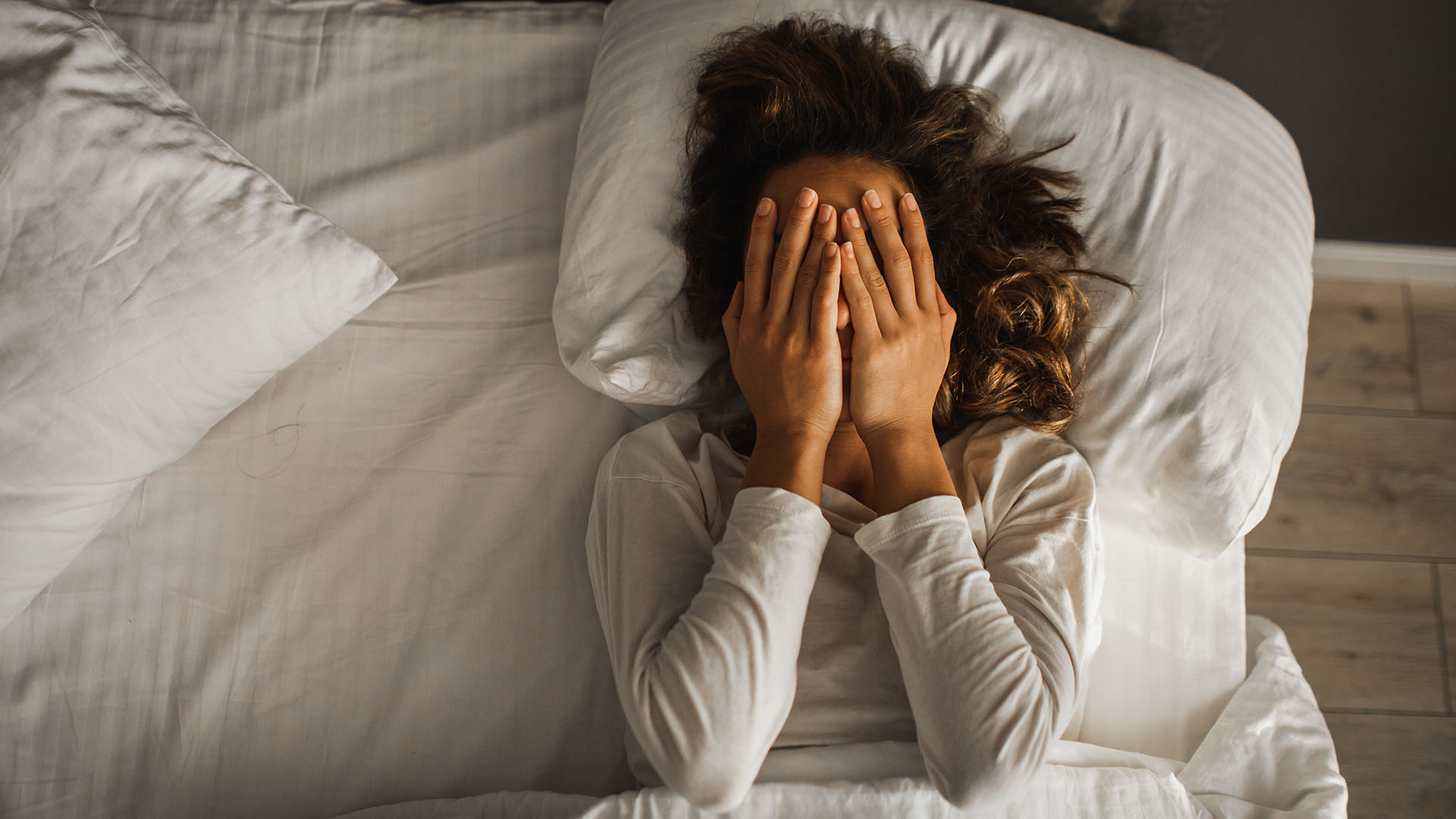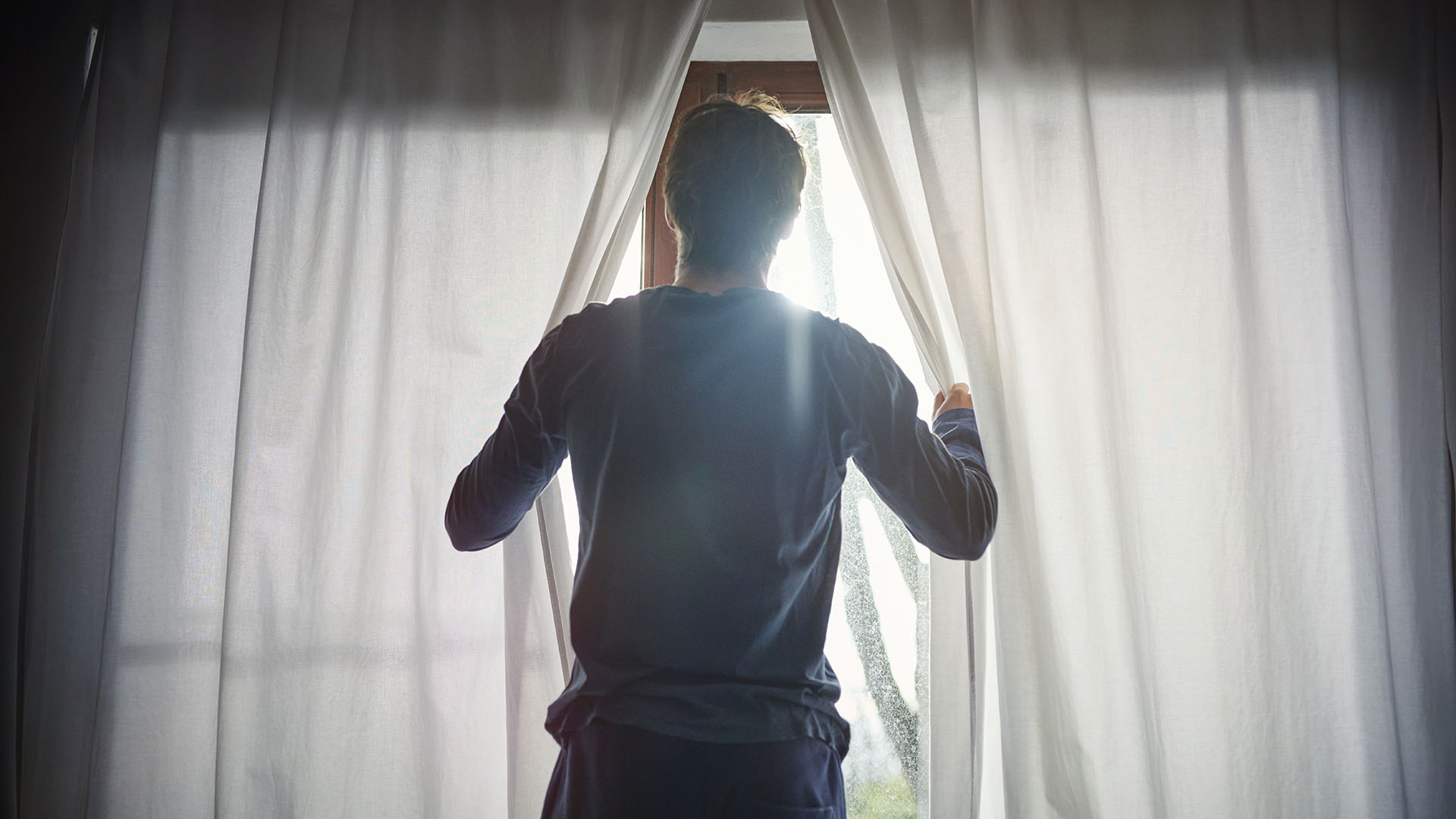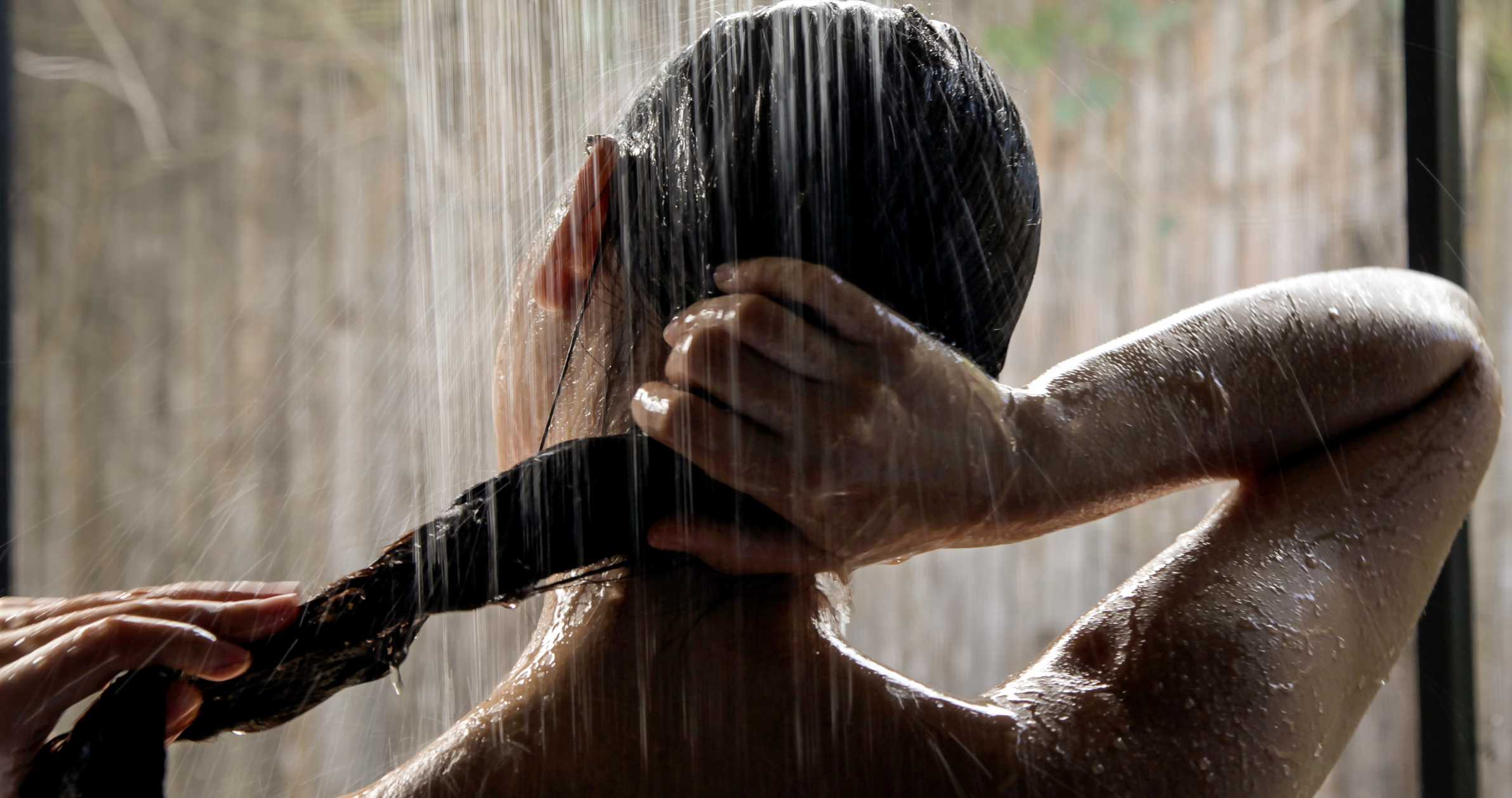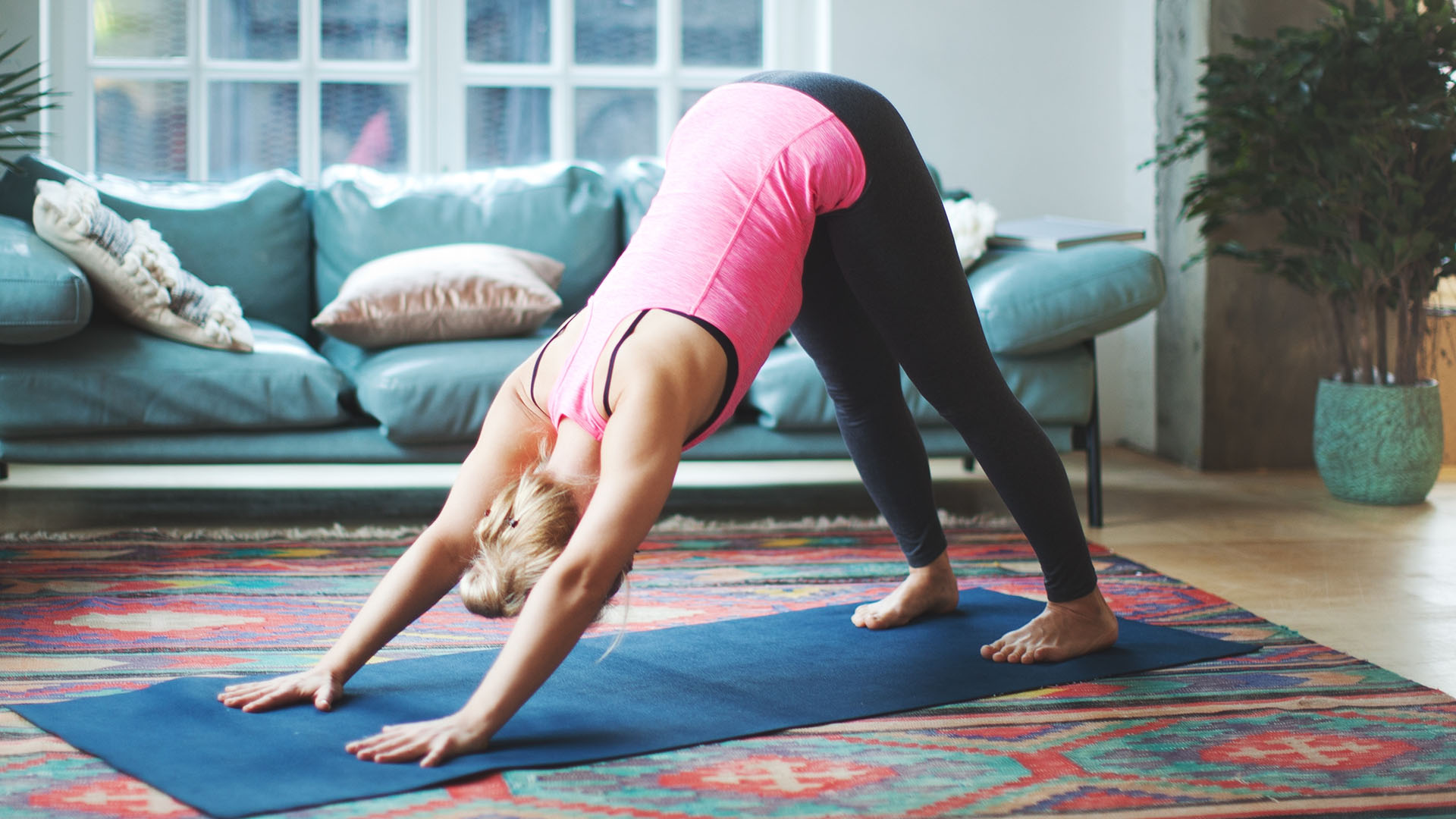This is the perfect winter wake-up routine, according to a sleep expert
Here's how to nail those unappealing, dark, chilly mornings

The shortest day has passed, but summer still feels like a distant dream. And in this, the most depressing of all the months, getting out of bed in the mornings remains a struggle. It's cold and dark. There's just not a lot, other than obligation, that makes moving from inside the cosy covers to outside of them seem like a good idea.
We already wrote about the scientific reason why it's harder to get out of bed when it's still dark outside. So what can you do to ease the pain? Here, we spoke to a sleep expert for their tips on building the perfect winter morning routine, so you start the day alert and ready to go. Here's what they had to say...
When your alarm sounds
1. Kick the snooze habit
According to Dr Lindsay Browning, a chartered psychologist, neuroscientist and sleep expert at And So To Bed, hitting snooze is not how to wake up earlier in the long run. "You'll either end up falling back asleep, which will make you late for work, or you'll be lying there with your negative thoughts before the day has even begun," she explains. "Also, if you repeatedly hit the snooze button, you won't be getting good quality sleep as it will be broken by the repeated alarm."
The type of alarm you have can also make a difference – some iPhone alarms are better than others at fighting off grogginess. And many people find that a wakeup light, which gets gradually brighter over a set period of time in the morning, is a more pleasant and natural-feeling way to wake up during the dark winter months.
2. Get out of bed immediately
It sounds easier said than done, but Dr Lindsay insists that getting up as soon as your alarm sounds is a habit that can be learnt, like any other. One easy thing to implement is to sit up in bed when your alarm goes off. "Making simple posture changes can help to wake your body and keep you from hitting the snooze button." The boss-level variation on this is to move your alarm clock (or phone) across the room so you actually have to get up to to turn it off.

3. Open your curtains
Not super relevant if you're waking up before it's light outside, but in general it's a good move to expose yourself to the morning light as soon as possible. Dr Lindsay suggests opening your curtains when you get out of bed to switch your alarm off. "This routine will not only give you a reason to get out of bed, but as the bright light fills your eyes it will help you feel more alert," she says. "It also makes falling back asleep much harder, as no one wants to sleep with the sun shining in their face, or with the next door neighbor glaring through the window."
As soon as you're out of bed
4. Hop in the shower
A major part of the issue here is that bed = warm and outside of bed = not warm (although here are some tips for keeping your room cosy without putting the heating on). Counter this by hopping directly into a hot shower when you wake up. "Having a shower straight after getting out of bed is a great way to get the blood flowing, warming you up and helping boost your energy for the day ahead."
Sign up to get the BEST of Tom's Guide direct to your inbox.
Get instant access to breaking news, the hottest reviews, great deals and helpful tips.

5. Have a hot breakfast
Start the day with a hot breakfast, like porridge, or a hot cup of tea or coffee. "This will not only warm you up but will also help replenish your energy levels," says Dr Lindsay. "If you are using the oven to cook a breakfast, leave the oven door open once the oven has been turned off to release heat to the rest of the house."
6. Do something you enjoy
It is much easier to get out of bed when you have something to look forward to in the morning other than work. Try to create a morning ritual and enjoy the little things such as a morning coffee, a gym class, or reading a few pages of your current book. This will help you want to get out of bed and start your day.
Before bedtime
7. Plan for the next day
"Before you end your evening and decide to go to sleep, write down what you are going to get done and organize your next day," suggests Dr Lindsay. You might also want to plan what you'll wear the following day, and get your lunch sorted before you go to bed.
"This will not only make your day more productive, it will also reduce anxiety when you go to bed because you won't be lying there worrying about what you need to do tomorrow." Hopefully, you'll find it easier to drop off, and better sleep means you're more likely to be ready to face the day when your alarm goes off the following morning.

8. Create a relaxing bedtime routine
"The lack of bright sunlight can lead to people getting the 'winter blues', or more accurately called Seasonal Affective Disorder (SAD)," explains Dr Lindsay. "If you are struggling with worry and anxiety at bedtime, then it is important to create a relaxing wind-down time before bed."
If you tend to work in the evenings, she suggests stopping at least an hour before bed, and spending the time doing something relaxing like having a bath, reading a book, or doing some yoga. It can also help to write down any worries playing on your mind before you turn in for the night, to help clear your mind for sleep.
9. Make sure your sleep setup is on point
Better sleep means a less painful wakeup, and if you haven't paid much attention to your bed setup before, it's worth making sure it's working for you. Our best mattress guide has recommendations for a range of sleep styles and budgets. Also make sure your bedding is right for you – in the colder months, you may need a duvet with a higher tog rating (here's our best duvet guide for our top picks).

Dr Lindsay Browning is a chartered psychologist, neuroscientist, and sleep expert at Trouble Sleeping. A member of the British Sleep Society and the American Academy of Sleep Medicine, she has published several academic papers and an international self-help book: Navigating Sleeplessness.

Ruth is currently Homes Editor on Tom's Guide's sister site TechRadar, where she reviews and writes about everything from air fryers to vacuum cleaners to coffee machines, as well as the latest smart home gadgets. Prior to making the shift to Homes, Ruth was Tom's Guide's Sleep Editor. A certified Sleep Science Coach, she has tested more mattresses than her small flat can handle and will talk at length about them to anyone who shows even a passing interest.
